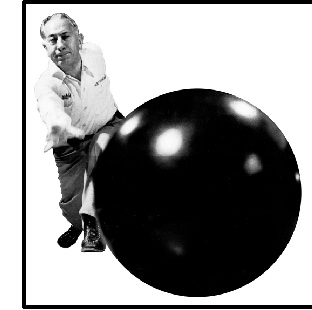 
|

|

|

|
| |
|
|
|
Bowling Alone: The Collapse and Revival of American Community
Better Together Even if the business of America is business, it takes more than money to make a society tick. Capitalism requires both financial and physical capital (that is, money and machinery). But a dynamic capitalism, it is commonly argued, also needs new ideas, or intellectual capital, and workers' skills, or human capital. In his recent book--the elaboration of much-debated earlier articles--and in Better Together, a new report by the Saguaro Seminar at Harvard's Kennedy School of Government, political scientist Robert Putnam makes the case that societies also need "social capital," and that the United States has suffered from a decline in social capital over roughly the past four decades. Reviving a term used off and on over the past century, Putnam defines social capital as "connections among individuals--social networks and the norms of reciprocity and trustworthiness that arise from them." It's "civic virtue" that is "embedded in a dense network of reciprocal social relations." Social capital represents the idea of "community" adapted to a large-scale capitalist society. Not surprisingly, social capital is more abundant in small communities than in big cities, but networks that constitute social capital develop in churches, unions, PTAs, neighborhood clubs, fraternal organizations and even bowling leagues (which have declined in the United States, even as "bowling alone"--or as a pick-up group--has increased). It's an appealing and useful concept, a metaphorical challenge to conventional market
These different social acts and norms are important, but they're not exactly equivalent. Are the social connections that bind a longstanding reading group or bridge club together the same as the solidarity of a group of workers on strike, the communality of religious belief, the warmth of family dinners together, or even the utilitarian bonding of a neighborhood organization or environmental group? Putnam makes some distinctions: He argues that the most valuable social capital involves long-term, direct personal relationships. While showing that societies with higher social capital generally tend to be more tolerant and egalitarian, he acknowledges that some groups--like the Ku Klux Klan--don't fit that correlation neatly. Indeed, he argues that there are two distinct types of social capital--bonding, which links like individuals with each other, and bridging, which links different groups. The two can be at odds. On the whole, however, Putnam argues that societies are better off in all ways if they have more social capital, whatever the type: "Social capital makes us smarter, healthier, richer, and better able to govern a just and stable democracy." He amasses an intriguing body of supportive research, showing how declining social participation is linked to declining health and satisfaction with life as well as economic growth. But what if we looked at this activity not as capital, metaphorically building on the business model, but as work? The same kind of case could be made, for example, that the work of self-organization yields many benefits for society, even beyond its immediate goals, but we might distinguish among different kinds of work as producing different outcomes. We might decide some work is more important or effective.
|


